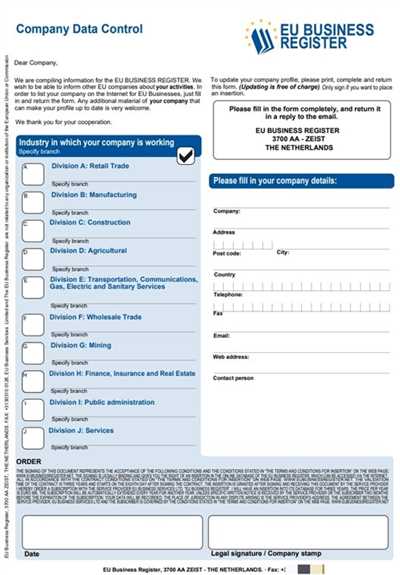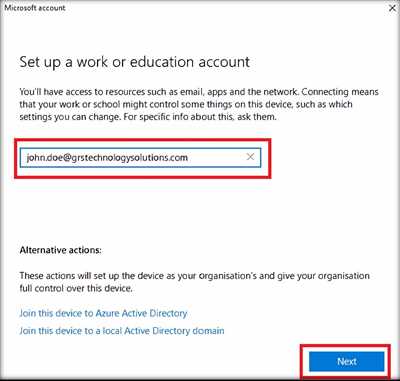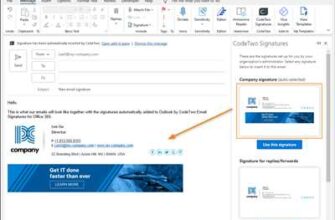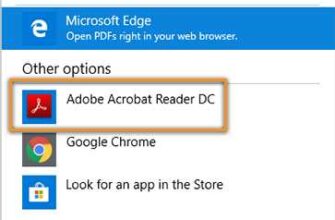
If you’re a little confused about how to register a company email, don’t worry! In this article, we’ll walk you through the basics and give you some valuable tips on how to get started.
First things first, you’ll need to select an email service provider. There are many companies out there that offer email services, so it’s important to choose the one that suits your needs the best. Some popular options include Hotmail, Gmail, and HostGator.
Once you’ve selected a provider, you’ll need to complete the registration process. This usually involves filling out a form with your business details, such as your company name, address, and contact information. You may also be asked to create a custom email address for your company, which can help give your business a professional edge.
After completing the registration form, you’ll need to create a password for your email account. Make sure it’s something strong and secure, as this will help protect your company’s sensitive information. Don’t forget to write down your password in a safe place, as you’ll need it to access your account later.
Once you’ve registered your company email, you’ll be taken to a screen where you can customize your email settings and inbox. Take some time to explore these features, as they can help you organize your emails more efficiently and tailor your email service to suit your needs.
Now, you’re ready to start using your company email! You can begin sending and receiving messages from your customers and clients right away. If you have any questions or run into any issues along the way, don’t hesitate to reach out to your email service provider’s support team. They’re there to help you and can provide you with any additional instructions or assistance you may need.
In conclusion, registering a company email doesn’t have to be a complicated process. By following the steps outlined in this article and using the tips provided, you’ll be able to get your business email up and running in no time. So, stop the confusion, complete the process, and start enjoying the benefits of a professional email service for your business.
Professional powerful business email
When it comes to registering a company email, it’s important to have a professional and powerful email address that will assist your business in delivering top-notch service to your customers. In this article, we will provide some tips and sources to help you register your company email and make sure it’s a really powerful one.
If you’re registering a company email, the first step is to inquire with your chosen email service provider or domain registrar. They will have a form for you to fill out with your company name, domain name, and other necessary information. After completing the form, you’ll need to enter a unique password to secure your email account and make sure it’s well protected against unauthorized access.
There are many email service providers out there, so it’s important to select the one that best suits your needs. Some popular options include Gmail, Outlook, Hotmail, and Yahoo Mail. Each provider offers different features and pricing options, so be sure to do your research and choose the one that offers the features you’re looking for.
One option is to purchase a custom domain name for your business, which will give your company a more professional image. Having a custom domain name also allows you to create custom email addresses for your employees, such as [email protected]. This can help manage confusion and give your business a better professional appearance.
If you’re not sure which email service provider to choose, WPBeginner has a great article on the best email marketing services that can help guide you in making a decision. They provide a comparison of the different providers and their features, so you can make an informed choice.
Keep in mind that the process of registering a company email can vary depending on the provider you choose. Some providers offer an easy step-by-step process, while others may require more information or have additional steps. It’s always a good idea to read through the terms and conditions and reach out to their customer service if you have any questions.
In conclusion, registering a professional and powerful business email is a crucial step to establish a strong online presence. Make sure to select the right email service provider, choose a custom domain name if possible, and take advantage of the features and options they offer. With a powerful business email, you’ll be well on your way to success.
Business Email Basics
Setting up a business email is an essential step for any company looking to establish a professional online presence. A business email not only gives a more polished and credible image to your customers but also assists in building trust and better communication.
- Choose a domain name: The first step in registering a company email is to choose a domain name. A domain name is the word that comes after the “@” symbol in an email address. Make sure to choose a domain that relates to your business and is easy to remember.
- Select an email hosting provider: There are many popular email hosting providers such as Gmail, Hotmail, and Olokpa, among others. These providers offer different plans that provide varying features and benefits. Research and choose the email hosting provider that best suits your needs.
- Register your domain: After selecting an email hosting provider, you will need to register your domain. This process involves completing a few simple steps provided by the hosting platform. If you already have a domain, you can skip this step.
- Complete the registration process: Once you have registered your domain, you’ll need to follow the instructions provided by the hosting platform to complete the registration process. This typically involves providing your contact information, creating email accounts, and setting up your email manager.
- Start using your business email: After completing the registration process, you can start using your business email. You can access your emails through webmail platforms or configure them on popular email clients such as Outlook or mobile devices.
- Manage your business email accounts: As your business grows, you may need to add more email accounts for your employees or managers. Most hosting providers offer easy-to-use interfaces that allow you to manage your email accounts, create new ones, and set up email forwarding.
By following the above steps, you can ensure that your company has a professional email address that helps in maintaining a positive image with your customers and business partners.
Remember, a business email is a vital tool for communication and shouldn’t be overlooked. If you have any questions or need further assistance, our team at [Your Company Name] is always here to help!
What is a domain
A domain is an important part of establishing your online presence. In simple terms, it is your unique address on the internet. When you want to create a company email, you will need to register a domain first.
A domain consists of two main parts: the name and the extension. The name is what comes before the dot, such as “companyname”. The extension is what comes after the dot, such as “.com” or “.info”. The extension indicates the type of organization or purpose of the website or email.
Choosing the right domain name is crucial. It should be easy to remember, relevant to your business, and preferably, available for registration. You can use domain registration platforms like GoDaddy or Namecheap to check if your desired domain name is available.
There are various domain extensions to choose from, such as .com, .net, .org, and more. The best extension for your company email will depend on your specific needs and goals. Most businesses go with .com, as it is the most popular and recognized extension.
Once you have selected a domain name and extension, you will need to register it with a domain registrar. The registration process typically involves filling out a form and paying a registration fee. The registration can usually be done for a certain period, usually one year, and can be renewed before it expires.
After registering a domain, you will have the opportunity to create custom email addresses using that domain. For example, if your domain is companyname.com, you can create email addresses like [email protected] or [email protected].
There are various email hosting providers available that offer different features and options for managing your company email. Some popular options include Gmail for Business, Microsoft Office 365, and G Suite by Google. The best email hosting provider for your business will depend on your specific needs and preferences.
In summary, a domain is a unique address on the internet that you need to register in order to create a company email. It consists of a name and an extension, which can vary depending on your business. Selecting the right domain name and extension is important for establishing a professional online presence. Once you have registered a domain, you can create custom email addresses using that domain and choose an email hosting provider that suits your needs.
What is a website
A website is an online presence for a person, business, or organization. It is a collection of web pages that are accessible via the internet. Websites serve various purposes, such as providing information, selling products or services, connecting with customers, or sharing content.
When you visit a website, you will typically see a combination of text, images, and interactive elements. Websites can be viewed on various devices, including computers, smartphones, and tablets. They can contain static content, such as informative articles or news updates, as well as dynamic content, such as online forms or real-time chat.
Creating a website involves several steps, beginning with registering a domain name. A domain name is the address that users will type into their web browsers to access your website (e.g., www.example.com). You can purchase domain names from a domain registrar, such as GoDaddy or Namecheap.
After registering a domain name, you will need to choose a web hosting provider. Web hosting providers offer storage space on servers where your website files will be stored. Some popular web hosting providers are HostGator, Bluehost, and SiteGround. When choosing a web hosting provider, consider factors such as cost, reliability, and customer support.
Once you have a domain name and hosting provider, you can start building your website. This process can vary depending on your needs and technical expertise. If you are not familiar with web development, there are numerous website builders and content management systems (CMS) available that don’t require coding. Examples include WordPress, Wix, and Squarespace.
When designing your website, it’s essential to create a user-friendly and visually appealing layout. Consider your target audience and tailor the design to their needs and expectations. Make sure your website is responsive, meaning it looks good and functions properly on different devices and screen sizes.
To make your website more professional, you can create personalized email addresses using your domain name. For example, instead of using a generic Gmail or Yahoo email address, you can have an email address like [email protected]. Most web hosting providers offer email services as part of their packages, allowing you to set up and manage custom email accounts.
In conclusion, a website is a crucial tool for establishing an online presence and connecting with your audience. It provides a platform to deliver information, market products or services, and engage with customers. By following the steps outlined in this article, you can register a domain, choose a hosting provider, and create a professional website for your needs.
Step 2 – Choose an email hosting service

Choosing the right email hosting service is a crucial step in the process of registering a company email. There are many great options available in the market that cater to the specific needs of different companies.
If you’re looking for a free email hosting service, providers like Hotmail and Gmail are popular choices. They offer a range of features and are easy to set up. However, they come with limitations, such as ads in your email and the risk of having your email address expire if you don’t use it frequently.
If you want more control and customization, a paid email hosting service is the way to go. Companies like Office 365, HostGator, and GoDaddy provide powerful email hosting packages that can integrate with your website and offer professional email addresses with your company’s domain name.
When choosing an email hosting service, take into account the number of email accounts you’ll need, the storage space required, and any additional features that may be important to your business. For example, if you have employees who frequently travel or work remotely, having mobile access to their emails might be a crucial feature.
It’s important to thoroughly research different email hosting service providers and read reviews or comments from other customers to make sure you’re making the right choice. Look for a provider that offers reliable customer support, as well as easy setup and configuration processes.
Once you’ve decided on a hosting provider, the registration process will vary depending on the provider. Most hosting providers will provide a step-by-step tutorial or guide to help you through the process. You’ll typically need to provide your company’s information, such as the name, address, and contact details.
If you already have a domain name, you can use it to create your company email address. If not, you can purchase one from the hosting provider or use a domain name registrar like GoDaddy. Having a custom domain name for your email address adds a professional touch and helps build brand recognition among your customers.
After completing the registration process, you’ll be provided with login credentials to access your new email account. Some hosting providers offer webmail platforms, while others provide options to integrate with popular email clients like Microsoft Outlook or Mozilla Thunderbird.
So, to sum it up, when registering a company email, choosing the right email hosting service is an important step. Take into consideration the specific needs of your business, weigh the pros and cons of different services, and make an informed decision. Remember to choose a reliable provider that offers the features and support you require.
Comments
If you have any questions or comments regarding our services or if you need further information on setting up your company email, please leave a comment below. We are here to assist you and make sure you have a smooth process of registering and managing your email accounts.
If you are having any technical issues or need assistance with any step in the registration process, feel free to reach out to our tech support team. They will be more than happy to help you.
We hope this tutorial has been helpful in guiding you through the steps to register and manage your company email. If you have any feedback or suggestions for improvement, we would love to hear from you.
If you are looking for a custom domain to host your business email addresses, we can assist you with that. Our packages vary depending on your needs, and we offer powerful email hosting plans that will help you take full advantage of the internet and mobile capabilities.
Finally, if you have any other questions or comments, please don’t hesitate to contact us. We are here to assist you and make sure you have a great experience with our email service.
Thank you for choosing our services. We look forward to hearing from you soon!
Best regards,
Dane Olokpa
Email Services Manager
Sources:
- This step-by-step guide provides instructions on how to create a free business email address.
- Learn how to create a custom email address with your domain from this article.
These sources will help you understand the basics of registering a company email address. They provide step-by-step instructions, tips for choosing the right email hosting service, and more. Whether you are a small business owner or an individual looking to create a professional email address, these sources offer great information to get you started.









